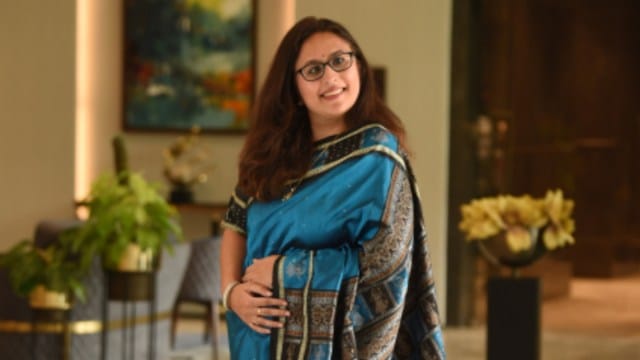‘None of us are middle class’: Edelweiss CEO says social media makes even those with Rs 70 lakh income face financial anxiety
Radhika Gupta puts the real middle-class bracket at just Rs 5–8 lakh annually, not Rs 70 lakh.
 Gupta recently appeared on the Rahul Jain Podcast
Gupta recently appeared on the Rahul Jain PodcastNot long ago, Rs 70 lakh a year would have been the stuff of dreams. Today, the Internet is divided over whether an income of this size counts as “middle class” in India. A recent podcast hosted by Rahul Jain pushed that question into the spotlight, and the CEO of Edelweiss Mutual Fund, Radhika Gupta, offered a blunt answer: it doesn’t.
“What we now like to call middle class is almost cool,” she said. “The reality is – none of us are middle class. The technical definition of middle class cannot be Rs 70 lakh of income. Rs 70 lakh is upper class.”
Yet in India’s big cities, plenty of professionals with salaries in the top percentiles feel like they are barely keeping up. Rising rents, lifestyle inflation, and the constant pressure of “log kya kahenge (what will people say)” have made even seven-figure salaries feel inadequate. The Edelweiss CEO sees this as an identity hangover, high earners who still self-identify as “middle class” because of their upbringing.
“All of us come from middle-class roots. We have middle-class psychosis, middle-class thinking, grandparents who were middle or lower middle class,” she said. “We hold that word very dear to us. But let’s be real, most of us are not middle class anymore.”
She puts the real middle-class bracket at just Rs 5–8 lakh annually, not Rs 70 lakh. And with 140 crore people in the country, she argues, applying a single label to everyone is “meaningless.” Roughly 10 crore people earn $12,000–$14,000 (Rs 10 lakh-Rs 12 lakh) per year, while more than 100 crore live under $2,000 (Rs 1.7 lakh).
Social media makes the squeeze worse. “I spoke to a Gen Z kid,” she recalled. “I asked why they’re resistant to 60–70 hour work weeks. He said, ‘We have to go to the gym, maintain fitness, take vacations—because we’re competing on social media.’”
This public comparison, she warned, heightens money anxiety. “The conflict between saving and spending always existed. But today, it’s exaggerated.”
On paper, Rs 70 lakh is a high income. In the collective psyche, though, “It never feels like enough.”


- 01
- 02
- 03
- 04
- 05





























